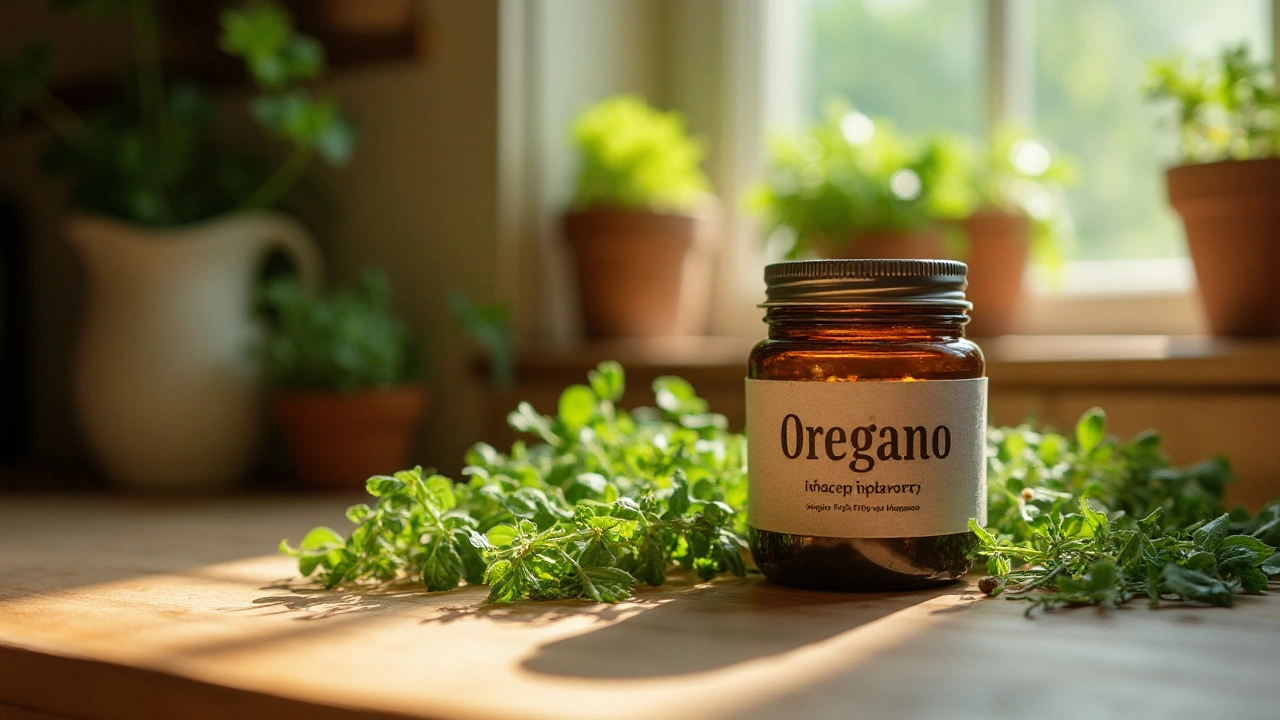Oregano benefits: what it does and how to use it safely
Oregano isn’t just a pizza topper. The herb contains strong compounds — mainly carvacrol and thymol — that have real effects on microbes, inflammation, and digestion. People use oregano leaves, tea, and concentrated oregano oil for different goals. Below I’ll explain the proven benefits, how to use oregano practically, and the safety checks you should do first.
What oregano can help with
Antimicrobial: Lab research shows carvacrol and thymol damage the cell membranes of bacteria and fungi. That’s why oregano oil is often used for mild skin infections, toenail fungus, or to reduce unwanted gut bacteria. It’s not a prescription antibiotic replacement, but it can support hygiene and topical care.
Anti-inflammatory and antioxidant: Oregano has antioxidants that reduce oxidative stress and mild inflammation. People report less minor joint stiffness or skin redness when using topical, diluted oregano oil short-term, and adding fresh oregano to meals gives an antioxidant boost.
Digestion and gut comfort: Oregano stimulates digestion and can help with bloating and gas when used as a tea or in food. A simple cup of oregano tea (1 tsp dried oregano steeped 5–10 minutes) often eases mild indigestion.
Respiratory support: Steam inhalation with a few drops of diluted oregano oil (added to hot water) may help loosen mucus and soothe irritated airways for short periods. It’s a symptom tool, not a cure.
How to use oregano and stay safe
Cooking: Best place to start. Fresh or dried leaves add flavor and antioxidants without risk. Use a handful of fresh leaves or 1–2 teaspoons dried in sauces, salads, or marinades.
Tea: Steep 1 tsp dried oregano or a few fresh leaves in hot water for 5–10 minutes. Drink once or twice a day for digestion or mild respiratory relief.
Oregano oil: This is concentrated. Look for oils that list carvacrol content and choose reputable brands. For topical use, always dilute: 1 drop of oregano oil to at least 1 teaspoon (5 ml) of carrier oil. For internal use, follow product labels and start with low doses in capsule form. If you take it orally, limit short-term use and consult your doctor.
Safety notes: Avoid oregano oil during pregnancy and breastfeeding unless a clinician approves. People on blood thinners or with bleeding disorders should check with a doctor — oregano can affect clotting. Some people get stomach upset or skin irritation; do a patch test for topical use. Stop use and seek care if you have allergic reactions (rash, swelling, breathing trouble).
Quality matters: Choose products with clear ingredient lists, standardized carvacrol content, and third-party testing when possible. Fresh herbs are low-risk and a great daily way to gain benefits. Concentrated oil can be helpful but treat it like a medicine, not just a kitchen spice.
If you want to try oregano for a specific problem, mention it to your healthcare provider so they can advise on safe dosing and interactions. Small, sensible steps get results without unnecessary risks.

Discover the Top 10 Health Benefits of Oregano Supplements
Oregano supplements are more than just culinary delights; they offer a plethora of health benefits that might surprise you. From boosting immune function to fighting inflammation, oregano’s powerful properties make it a staple in natural health. This article explores ten health benefits of oregano dietary supplements, diving into how this humble herb can support overall wellness. Uncover the science-backed advantages of incorporating oregano into your daily routine.
More Detail